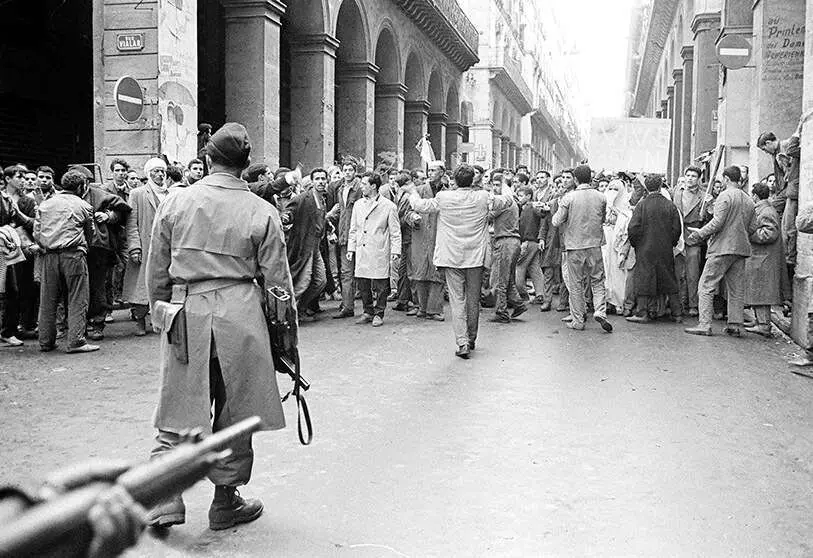Unsealed wounds 60 years after the Algerian war

On 19 March 1962, the Agreements of Evian, signed the day before at the Hôtel du Parc in that Alpine town between the delegations of France and the Algerian National Liberation Front (FLN), came into force. Eight years of one of the bloodiest wars of decolonisation in history and almost two years of secret negotiations had passed before the desired ceasefire was reached.
Sixty years later, many wounds are still festering, even though Emmanuel Macron, the first French president born after that date, has embarked on the arduous path of what he aspires to be the definitive reconciliation.
At the talks table, each side showed its damages: 400,000 dead and almost two million wounded on the Algerian side; 30,000 dead and 70,000 wounded on the French side, including soldiers and European citizens -many Spaniards among them- enrolled in the ranks of the French Armed Forces or workers in the farms and companies owned by the French settlers.
The agreements amounted in reality to a full-blown capitulation, which would open the door to a great rift within each of the already separate societies, French and Algerian. No guarantees were signed at the Evian table for the harkis, the Algerian citizens who had been in the service of the French, especially the army. They were to be the great victims of the immediate post-war period, as their relentless persecution ignominiously ended the lives of tens of thousands of them, after suffering all kinds of torture, in addition to the stigmatisation of themselves and their families forever. With the exception of a few, France did not embark them for the ports of Nice or Marseille, and ignored the vast majority of them, a guilt that Macron recently sought to atone for, even partially, by receiving a large representation of their descendants at the Elysée Palace and promising them compensation.
On the other hand, General de Gaulle had urged his negotiators to obtain certain guarantees from the new Algerian authorities that they would respect the lives and property of their own citizens. After the signing of the agreements, these clauses proved inoperative, given the massive departure of the former colonists to the mainland. Many of them followed the OAS slogans, which called for the destruction and burning of houses, land and property that they could not take with them to France.
Aware that this anniversary would take place during his term in office, Macron set himself the task of breaking the long official silence on the war and the decolonisation of Algeria. He told the journalists who accompanied him on his trip to Jerusalem in January 2020 that he intended to give the memory of the events in Algeria "the same status as Jacques Chirac did for the Shoah in 1995", as Frédéric Bobin recalled in Le Monde. Indeed, in that year, the then French president broke another great taboo by going to the former Winter Velodrome, the Vél' d'Hiv, and delivering a speech in which he described as "irreparable actions" [on France's part] the sadly famous anti-Jewish raids of July 1942, many of whose detainees would be deported and murdered in Nazi concentration and extermination camps.
Macron would have liked to move faster in this reconciliation process. His first significant gesture came in September 2018, when "in the name of the French Republic" he acknowledged that the mathematician and member of the Algerian Communist Party (PCA), Maurice Audin, "was tortured and executed or tortured to death" by French military.
He went on to commission the French-Algerian historian Benjamin Stora to draw up a detailed account of all the exactions committed in that war of decolonisation, with one common denominator: "To contribute to calming the spirits of all those whom the war annihilated both in France and in Algeria". Stora complied and delivered his report to Macron a year ago, but it was not welcomed by the current Algerian authorities, who continue to demand remembrance and reparations. They thus appear to be demonstrating a desire to keep the wounds of the past open, without ruling out rubbing more salt into them by reminding France of "its imperishable guilt"

